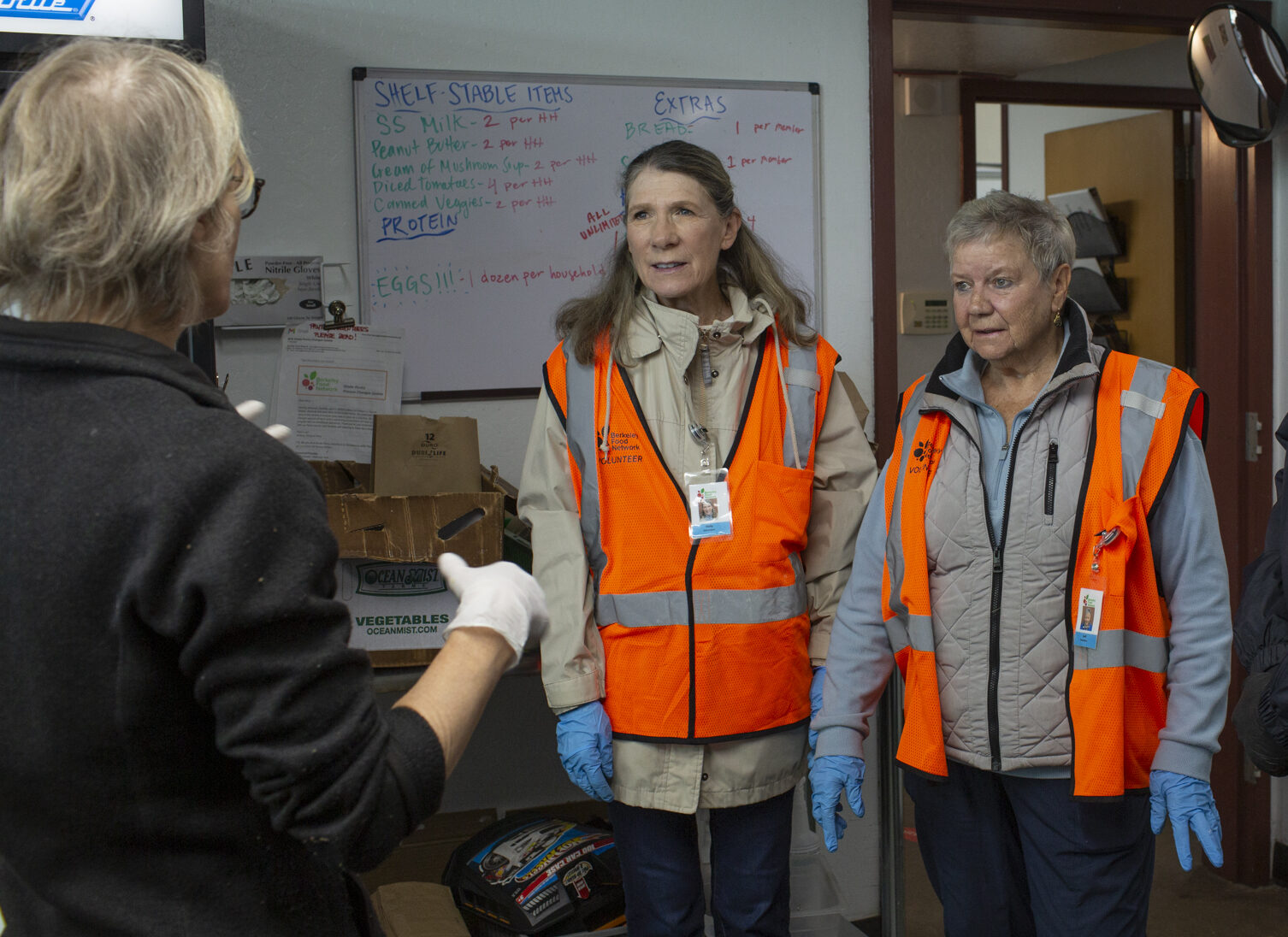Will they run out of food? Will there be enough eggs for my family? What about produce?
These are common questions those receiving assistance ask themselves while waiting for their turn to shop. At BFN we recognize that community members come from various challenging lived experiences that can manifest as anxiety and tension at our distributions.
BFN’s mission is to get healthy food to people who need it. This includes everyone who lives, works, and studies in Northern Alameda County, no matter their circumstances. Many of those we support endure ongoing stressors, whether chronic food insecurity, housing instability, economic pressures, or mental health challenges, that we must be aware of to deliver the best quality services. BFN alone cannot address crises in other areas of community members’ lives, however, we can design our food assistance programs through a trauma-informed lens to provide the highest quality service possible.
Our volunteers operate our 11 pantry distributions and are key to creating an environment that is conscious and sensitive to the traumas members may be experiencing. Last Monday, volunteers gathered in our Community Room for the first BFN training focused on delivering sensitive and trauma-informed service at our pantries.
When a service is trauma-informed, it acknowledges the need to understand one’s life experiences to deliver effective care. In the context of food assistance, trauma-informed care recognizes that members may have a complicated and painful relationship with food–one that can bring up feelings of shame, scarcity, or judgment–due to their greater life circumstances. This may affect the way they interact with staff, volunteers, and other community members receiving assistance.
The monthly Pantry Volunteer Training provided an overview of the BFN pantry opportunities, our philosophies around dignity in service delivery, how trauma responses can show up in food distribution settings, and best practices for providing trauma-informed assistance while practicing self-care.
“It’s important that all volunteers who interact with the public are prepared with the tools to treat folks with dignity and respect, the confidence to de-escalate a conflict, and an understanding of the ways that trauma impacts the brain,” Said Emma Greenberg-Bell, Pantry Program Manager.
Working directly with our community can produce feelings of stress and anxiety for volunteers, especially in the infrequent occurrence that a challenging situation arises. This training aimed to ensure our volunteers feel supported and prepared to independently handle or ask for help during a tense situation. BFN strives to not only support the community in the best way possible but also ensure volunteers have the context and tools to build relationships and positive interactions with the public.
The training is one of BFN’s many steps towards enhancing our quality of services over the next year to create a lasting and deeper impact on each individual and family we serve.
If you are interested in serving your community as a BFN Pantry Volunteer, please get started by watching our orientation video at the link below:
